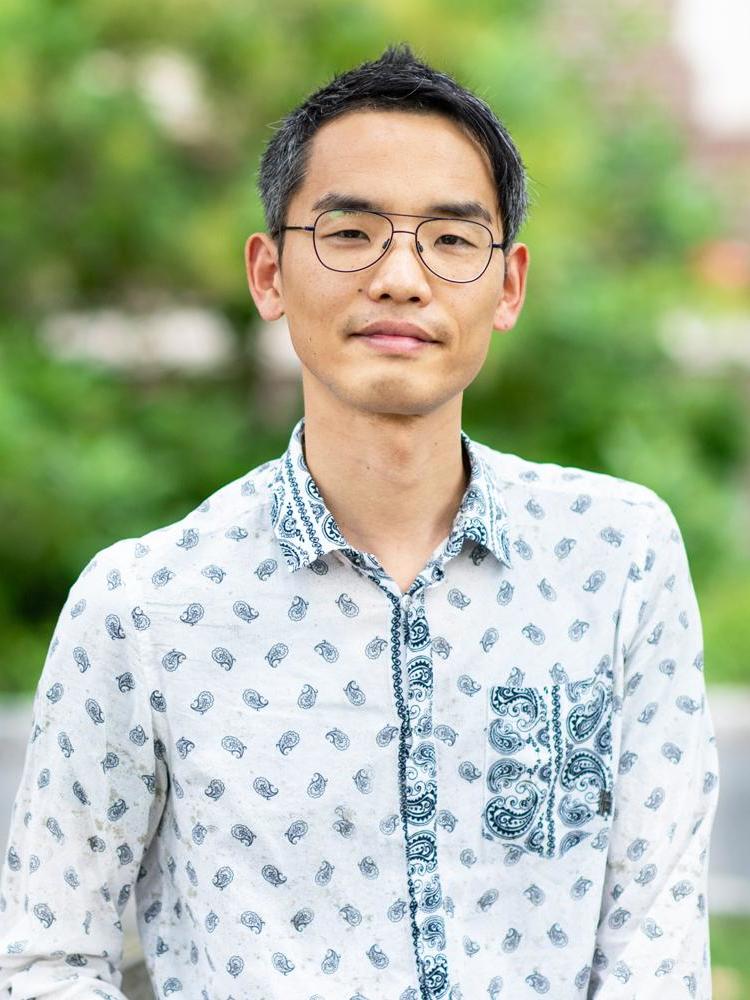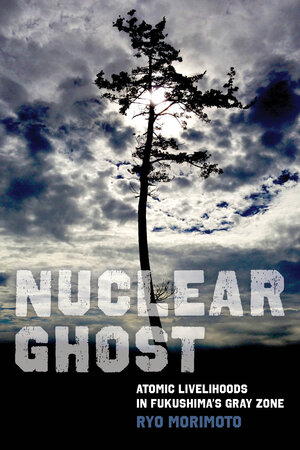
In one of the first in-depth ethnographic accounts of coastal Fukushima written in English, Nuclear Ghost tells the stories of a diverse group of residents who aspire to live and die well in their now irradiated homes. Their determination to recover their land, cultures, and histories for future generations provides a compelling case study for reimagining relationality and accountability in the ever-atomizing world.
Ryo Morimoto is a first-generation college student and scholar from Japan and Assistant Professor of Anthropology at Princeton University. His scholarly work addresses the planetary impacts of our past and present engagements with nuclear things.
This book is part of our California Series in Public Anthropology and was supported by our FirstGen Program.
What motivated you to write Nuclear Ghost?
I worked as a translator for a foreign documentary film on Fukushima that was filmed between 2012-14. This experience exposed me to the global imagination of the nuclear accident in Fukushima and narratives of the victimhood being expected from the residents in the region. As a translator, I had to mediate the negotiation between a foreign film director who wanted the world to know about the danger of the region and the residents who tried to tell the world how they had been living in the area despite the accident. Because of this, I felt that I had unique access to the interpretative misalignment and the moral duty to relay what had been witnessed. So, I decided to conduct a long-term ethnography to capture and tell the residents’ ongoing lives despite and because of the accident — the details that stayed outside of the director’s camera.
What was something unexpected or surprising that you learned while working on the book?
I think the most surprising thing for me was understanding my audience, and how much I needed to contextualize my work for them. In the beginning, I did not realize what information I needed to include for people outside of Japan or people who only know Fukushima as a name. My editor, who did not know much about Japan, constantly challenged me about my internalized knowledge about the area and country and helped me figure out what additional background details I needed to include, like placenames, geographical details, etc.
What often happens to us researchers is that we become so immersed in our work that we forget that others may not share the same level of passion and commitment to our research topics. I certainly did not expect such details would impact the way the readers might and might not understand my scholarly arguments. This lesson told me that good storytelling comes from successfully establishing a common ground or shared images in our minds.
Why is it crucial for us to hear the stories of these residents in coastal Fukushima?
I think it is essential for us to learn from their experience since we tend to try to keep our distance from radiation and/or radioactive materials. This is true even though we collectively use nuclear energy or other nuclear-related technologies to make our lives better. Their lives with radiation— though forced upon them— tell us that radiation is part and parcel of what it means to live in our already radioactive world, and that we falsely imagine that only some people are exposed to radiation. What coastal Fukushima residents’ stories allow us to see is that our avoidance of risks leads to burdens for others who tend to be less privileged. I like how one Japanese artist uses the phrase “the other side of the electric outlets” to encourage us to imagine the hidden connection between our lives and the lives of these residents. In this sense, since we benefit from nuclear energy, learning about those impacted by its generation is our collective responsibility.
What is the main message you want readers to take away from your book?
The main message in the book is a very humble one. I want the readers to be interested in the region and potentially visit there one day to see with their own eyes how people are living. As I was writing the book, I wanted my readers to challenge their presumptions about the region that came from the media reporting after the accident. By challenging our collective assumption of the impossibility of living after a nuclear accident, I wanted to show how the accident did not erase people’s lives before the accident, and the accident cannot and should not erase who they are as individuals.
What was the process of writing and publishing the book like for you? How did the FirstGen Program support you?
Writing a book about my home country as a second-language speaker of English was challenging. The FirstGen Program and funds enabled me to pay for a personal editor who helped me write for an English-speaking audience. But at the same time, being FirstGen prevented me from pretending like I was superior to others or relying too much on writing techniques and theorizations that might exclude certain groups of audiences. I simply could not write in a complicated manner, and as a result, my writing turned out to be accessible to broader audiences.
I think the wonderful thing about the FirstGen program is the acknowledgment that writing a book is about telling stories, and regardless of your educational background, resources, and other things, we all can tell stories. The FirstGen Program supports those of us from diverse educational backgrounds to get help to do it better.
As a first-gen scholar, what advice would you give other first-gen scholars hoping to publish a book?
My advice would be to know that UC Press has been investing in diversifying voices and stories by supporting those who have conventionally been excluded from academic bookshelves. Even though we might feel like being a FirstGen is a disadvantage and feel like we have been missing something, there are many things FirstGen scholars can offer to scholarly conversations and debates. I would argue that because of our unconventional academic paths, we have the advantage of telling different stories others might not have told yet.
